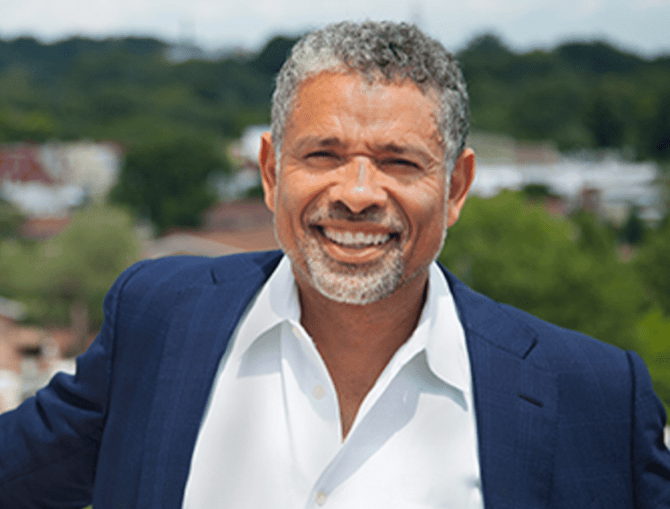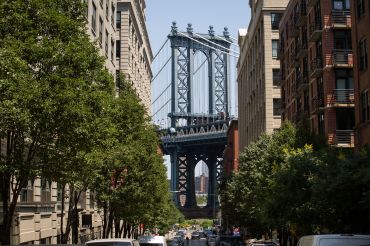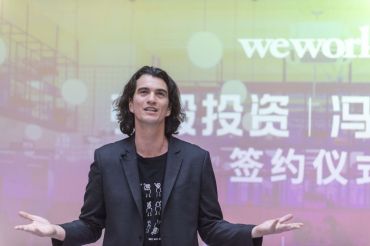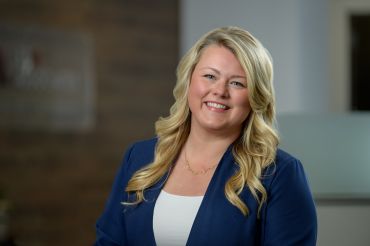NDC Founder on Expanding DC’s Affordable Housing Supply During COVID
By Keith Loria November 9, 2020 11:41 am
reprints
Washington, D.C., has long had a large need for affordable housing, and the COVID-19 pandemic has only added to the challenge.
In an effort to help, D.C.’s Department of Housing and Community Development is hoping to create a new loan program for developers who are acquiring and renovating affordable properties to help rescue some of the planned projects that could go without city funding given pandemic budget pressures.
Mayor Muriel Bowser’s proposed $38 million loan fund — leveraging a federal guarantee program — would provide third-party loans for developers working to preserve existing affordable units. Her goal is to preserve 6,000 units with expiring affordability covenants through 2025.
Last week, DHCD applied to the U.S. Department of Housing and Urban Development to create the new fund through the Section 108 loan program, which allows the city to leverage existing federal housing grants to access new low-cost loans.
In its application, DHCD said the selected projects would address the CDBG (community development block grant) national objective for low- to moderate-income individuals for housing.
“Each project will provide financing to developers for the acquisition and/or rehabilitation of multifamily units; an eligible CDBG activity,” DHCD stated in the document. “There were numerous projects that were waitlisted that may have otherwise been brought into DHCD’s pipeline, if not for the COVID-19 pandemic and its effect on available resources.”
Additionally, the loan fund would be designed to reach projects involving the acquisition and “substantial rehabilitation” of homes affordable to people earning up to 80 percent of D.C.’s median family income.
That could be what saves five projects totaling 270 units that applied for funding last year.
Adrian Washington founded the Neighborhood Development Company (NDC) in Washington in 1999 with the goal of creating a development company that would focus on the revitalization of emerging urban neighborhoods.
Washington said he has seen first-hand the importance of affordable housing in the District of Columbia and recently talked to Commercial Observer about how COVID has affected affordable housing; the growing need in D.C.; and how NDC residents participate in building the communities and creating the places where people want to live, work and play.
Commercial Observer: Characterize the need for low-income housing in the D.C. area today?
Adrian Washington: There is a tremendous need for low- and moderate-income housing in the D.C. area as we head into 2021. This was true, even before, and the pandemic has made things even worse.
How has the pandemic affected low-income communities and housing in the D.C. region?
The demand has increased. Many people in this population work in service industries, particularly hospitality, that have been devastated by the pandemic.
Tell me about the efforts NDC has made in the D.C. region to help.
Throughout its 21-year history, NDC has been one of the key players in helping to increase the supply of affordable housing. In addition to the hundreds of units we have delivered, and the hundreds more in our pipeline, we have been a leading advocate for governmental policies, served on numerous task forces, and have been in leadership roles in important housing organizations.
What are some of the developments NDC is currently working on that will help?
We have multiple projects in the area under construction or in pre-development — 1100 Eastern, Park 27, High Street, Cedar Greens and 3450 Eads in D.C., and The Commons in Prince Georges County — that, collectively, will add hundreds of low- and moderate-income housing units to the area.
What needs to be done to improve the availability?
The pandemic has devastated the budgets of state and local governments, putting pressure on the funds they have to subsidize affordable housing. Elected officials will have to hold strong and not gut the budgets of these important projects. Also, governments need to carefully examine cumbersome regulations and red tape that increase costs and delay construction schedules.
How do you get NDC residents to participate in building their communities?
Resident participation has been instrumental in helping our communities face the challenges of COVID. The key has been frequent and honest communication — constantly letting people know what is going on and what we are doing to keep them safe. Treating our residents as partners in the success of our communities has always been a cornerstone of our business philosophy; the foundation we have built with our residents over the years has served us and them well in the pandemic.
Do you see a change in administration impacting the work of NDC?
No. Throughout our history, administrations have come and gone. We adapt to the changing realities, but we continue to focus on our mission.
What are some of your important goals ahead?
NDC is growing, building upon the foundations we have established during our first two decades. Despite the current challenging times, the coming decade will see us growing our footprint in the Washington, D.C., area and expanding to other high-potential markets.


